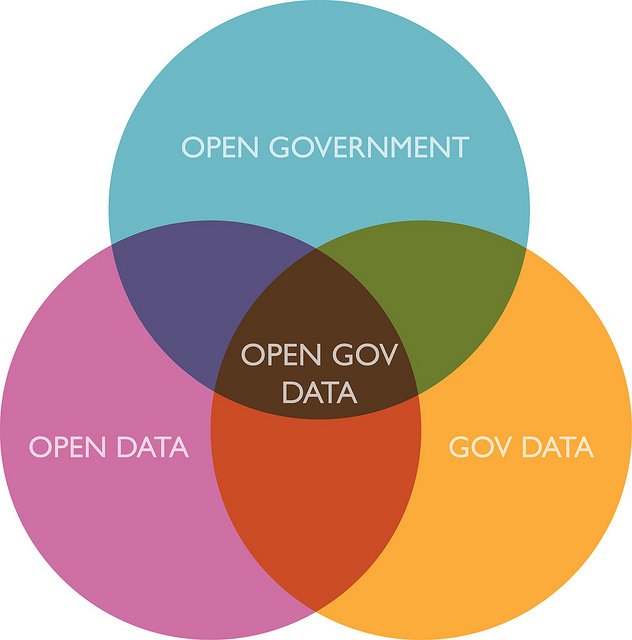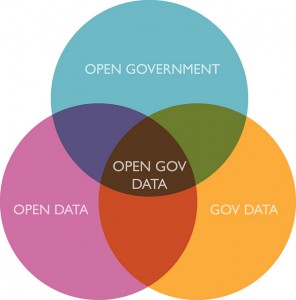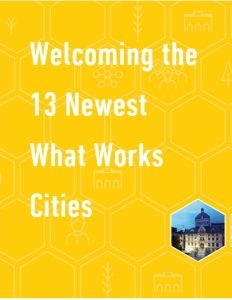

Photo by Justin Grimes licensed under CC BY 2.0
As a new year dawns, it’s interesting to reflect on what happened in the year just ending. A number of extremely positive changes occurred in U.S. cities.
Bloomberg Philanthropies, a foundation created by former New York City Mayor Michael Bloomberg, initiated significant change through the formation of a “What Works Cities” program. Funding of $42 million was made available for cities willing to enter into collaborative efforts with outside experts to enhance government programs. The initiative encourages public entities to allow citizen access to more data online, enhance transparency and provide public officials a way to establish benchmarks for improving constituent services.
The first eight mid-size cities to engage have benefited from funding that allows them to connect and collaborate with nonprofits and university partners that specialize in public data and performance management. The initial efforts are being built on open data platforms.
Open data relates to the concept that some information should be freely available to all parties to use, analyze and republish without restrictions. The rationale is that if various data-gathering parties have full access to information and can combine the data, the value will be much more relevant and comprehensive. The enhanced data will be helpful to taxpayers, corporations, universities, economic developers and public officials throughout the country.
Earlier this month, Bloomberg Philanthropies announced that 13 more cities, from Anchorage, Alaska, to Waco, Texas, were participating in the program. Their efforts will also focus on open data as a way to increase government transparency, reduce time involved in processing public information requests, gather statistics around success factors and improve the overall performance of governmental agencies.
Prior to its participation in the program, Jackson, Miss., one of the first cities to participate, had no open data policy, no focus on transparency, no online data services and no office charged with monitoring the improvement of government performance. All of that has now changed and the mayor recently announced a new Office of Innovation and Performance charged with establishing an open-data program as well as a plan to monitor improvements.
 Tulsa, Okla., has worked with several universities and foundations to enhance its current open data system by releasing information in a more useful and responsive format. The city will take another step and establish a performance management system to track progress toward strategic goals and share the progress with its citizens. With help from outside experts, constituent services should become more beneficial.
Tulsa, Okla., has worked with several universities and foundations to enhance its current open data system by releasing information in a more useful and responsive format. The city will take another step and establish a performance management system to track progress toward strategic goals and share the progress with its citizens. With help from outside experts, constituent services should become more beneficial.
Louisville, Ky., also received funding from the program. The city is working to improve the accuracy of its open data system and make it easier for city employees and residents to use the information. Louisville also plans to integrate quick, low-cost evaluations into planning new initiatives so that ongoing programs are continually upgraded.
The “What Works Cities” program is important because it provides a model as well as funding incentives for public officials to engage in collaborative efforts with outside experts. It inspires citizen engagement and holds public employees responsible for continual improvement in service delivery. It’s definitely a trend to watch.
